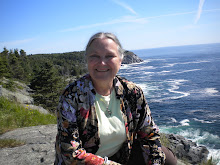I just finished reading Tracy Kidder's book, Strength in What Remains. I devoured it as if it were a novel, transfixed and often horrified, anxious about its charming protagonist with the improbable name of Deogracias. It brought into sharp relief the problem of what happens to people who have been through large-scale violence, because it is in part the story of Deogracias' survival of genocide in the African country of Burundi.
We know what happens on a small scale from research and stories about the lives of returned veterans, rape victims, and survivors of other violent experiences. The people are forever changed. They often suffer from disordered ways of perceiving and responding to what's going on in the world. They need to talk and talk about what they survived, and to do that talking with people who can hear and care and not be made crazy themselves. They need to find a new way of being in the world. Not a few of them find that some kind of return to the event is part of the story of their new life -- advocacy for other victims, promotion of legislation or social change to prevent what happened to them from happening to others, running support groups, and much else. And some never find a way to be part of "normal" society again.
But what happens when whole communities have been subjected to large scale and ongoing violence?
We look at the way Israel and Palestine deal with each other in the world. Both sides look just plain crazy to the outside observer. I am deeply certain that large scale and ongoing violence against the people of both sides has created this.
In Tracy Kidder's book, the protagonist returns to Burundi after being away in the United States for years. During that time he has not been subjected to the ongoing violence. He has had a chance to do a number of things that have helped him begin to heal. When he goes back, the people seem very strange to him compared to the way they were before. Kidder quotes Deogracias as saying "you know what it is? They are all crazy." (p. 214).
What can a country do when everyone is crazy?
And, shouldn't we as a country be thinking about this as we proceed with military options in Afghanistan and Pakistan? Shouldn't we be thinking about this as we get ready to leave Iraq? The aftermath of large scale ongoing violence has to be that everyone is crazy, and someone needs to help them pick up the pieces, begin to heal, and find a wholesome way to live -- maybe to find it again, maybe to find it for the first time.
Tuesday, September 29, 2009
Subscribe to:
Post Comments (Atom)

No comments:
Post a Comment